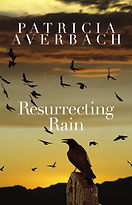

May 2022
The Beginnings of Fire
by Geula Geurts
CutBank, 25 pp.
Reviewed by Ofira Koopmans
The Beginnings of Fire is a brief, intimate exploration in essay form that examines what we mean when we talk about impurity — for women, for dishes, for body and soul. Weaving issues of modesty with Jewish laws of dietary purity, its author, Geula Geurts, shows ways in which it is possible to purify, whether physically or emotionally, whether through fire or water.
Geurts is a Dutch-born poet and essayist living in Jerusalem. Like her, I am the daughter of a Christian father and a Jewish mother. I read The Beginnings of Fire “in one breath” as we say in Dutch. The Dutch, Christian, and Jewish perspectives instilled in me since birth may be similar to that which Geurts grew up on, but what drew me in was the book’s underlying message conveyed between the lines in understated language: I am already clean. Women are not harlots. Women are not sluts. Women are not unclean.
The essay’s four sections are held together by separate themes, providing order and structure to Geurts’s anecdotes and musings. The first section centers around harlotry, the second around fire, the third around water, and the fourth around nakedness, all written in sparse language that makes these meditations all the more compelling. The chapters build on one another, like a four-part symphony whose music moves intermittently, crescendo and diminuendo, toward a final climax.
Geurts’s writing employs both a sense of dialogue between the sections, and conscious repetitions of key phrases. The phrase, “it’s easier to get rid of things than cleaning them” which first appears in the essay’s third line, is one of Geurts’s leitmotifs, one strand of the braid. “In my mind, a whore is a woman who tries to be clean, but somehow remains filthy,” is another. These phrases return with much impact, highlighting not only modern society’s throw-away culture, but also the narrator’s obsessive attempts at getting herself “clean” and coming to terms with her past, and more particularly, with the indelible mark left on her by her troubled and conflicted father.
Over the course of the essay, Geurts moves between the specific and the general, the Biblical and the personal, conflating her own personal story with universal themes. By quoting verses on dietary kashrut and citing from Torah, Prophets, Proverbs, the Gospels, Ephesians, as well as from an Aramaic-Hebrew medieval text that expounds on the myth of Lilith, Geurts traces notions of purity—some of which birthed age-old taboos of female sexuality—back to the beginnings of both Judaism and Christianity. These Biblical references locate the narrator in a chain of hundreds of generations of women.
The essay’s disconnected imagery, like brief, fragmented snapshots, create a far more poetic effect than any conventionally structured memoir could. These snippets, at times no more than hints, have the effect of powerful, brief, stabs. The absence of connective tissue between them is a silence that speaks loudly. A characterizing feature of The Beginnings of Fire is that Geurts asks more than answers. Her questions are often remarkable and original; for example, whether smoking can be seen as praying, her lungs being the offering:
My cigarette is a little altar and my lungs are the sacrifice. I am an offering, burning with longing for the Lord. Is this prayer?
Geurts employs a sharp sense of paradox to depict the complexity and contradiction inherent in issues of female modesty. She quotes the rebbetzin of her all-girls seminary in the Old City of Jerusalem as saying— “When a woman covers her skin, her soul is revealed. This is what you need to understand about modesty.” In the next sentence, Geurts adds: “I was wearing a skirt down to my ankles when a man walking by shouted—zonah! Whore,” and later calls up Genesis 38:15, in which Judah mistakes his daughter-in-law Tamar for a prostitute “because she had covered her face.”
The author draws on her family history in order to revisit her own complex relations with notions of purity and modesty. Her father, raised as a Catholic with its sharply conservative views on sexuality, converted to Judaism, after which he met and married her Jewish mother. Geurts describes his struggle with observing the Jewish Orthodox prohibition against touching, or even looking, at any woman besides his wife—which he managed to keep for several years until he fell off the wagon and began visiting whores.
It is this legacy that drives Geurts to explore the sense of uncleanliness she has felt since birth. “My sister tells me she thinks I should stop writing about the past, that it’s time to move on. I tell her that I don’t know how I became impure, that I need to know, because I want to be clean.” For her, writing has become a form of prayer; a coming to terms with the past that enables her to feel clean.
Her gripping account is lyrically written and a joy to read. Its underlying message remains necessary more than 3,000 years after Moses. It asserts that like art, like poetry—like the lyric essay itself—sexuality in women, far from being unclean, is a form of divine expression to be celebrated and experienced to the fullest.
Until April 2021, Ofira Koopmans was the Tel Aviv correspondent of dpa International, the International Service in English of Deutsche Presse-Agentur, Germany’s leading news agency. Following a career in journalism spanning twenty years, she is currently transitioning to creative writing and studies in The Shaindy Rudolf Graduate Program in Creative Writing.


